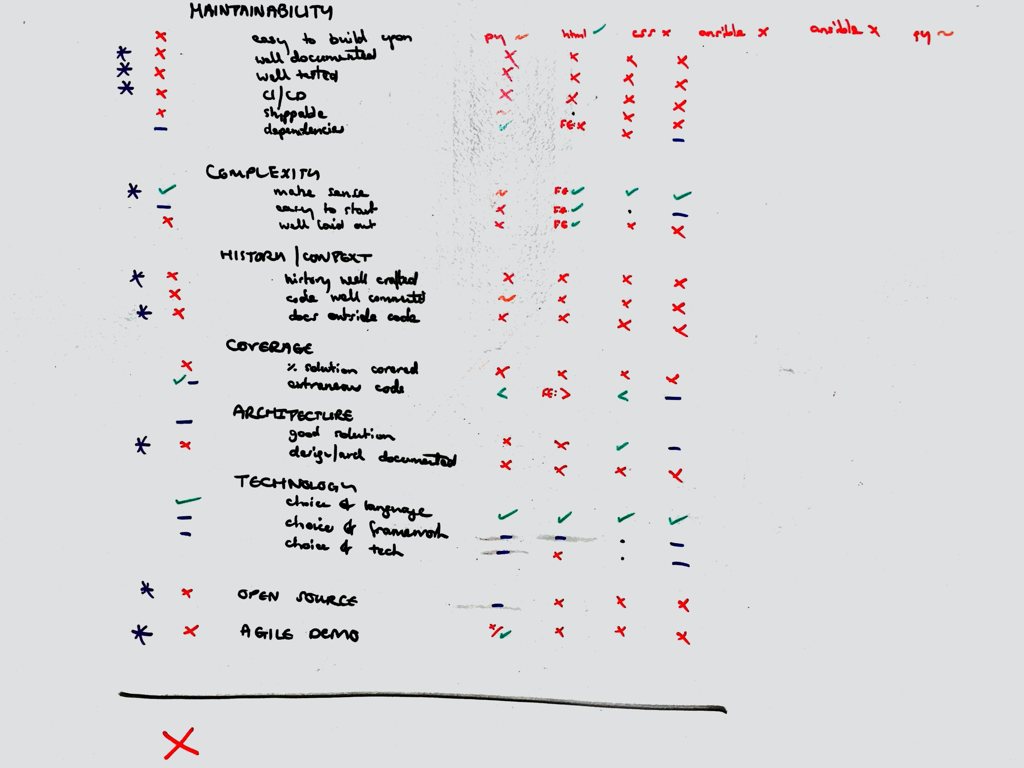Deciding whether to reuse code
Thursday 21 January, 2016 at 11.05am
- original url
- www.digi2al.co.uk/deciding-whether-to-reuse-code/
- reposted
- This is reposted with permission — An article I wrote for the Digi2al blog when I was contracting there.

A recent project for Digi2al involved building a beta version of an application for a client who already had an alpha prototype. We had to make a decision on whether to continue using the existing prototype code, or to start again from scratch.
Theoretically, the advantage to continuing with existing code is that some work is already done for you. But that work may actually hinder progress if it turns out that early decisions were incorrect or that it is solving the wrong thing.
In the excellent book on software practices The Mythical Man Month, Fred Brooks says:
“Where a new system concept or new technology is used, one has to build a system to throw away, for even the best planning is not so omniscient as to get it right the first time. Hence plan to throw one away; you will, anyhow.”
Although this statement is much more directed at classic waterfall projects than those using agile practices, there is still wisdom here. When you are first solving a problem, you don’t necessarily understand what is needed in order to design a good solution. This is why the UK Government’s Service Design Manual says:
“Following demonstration of your alpha, you may choose to discard the code and start fresh in the beta. If, however, your code is effective you may continue to iterate against your prototype.”
The real question is how do you know if the code is effective? This was doubly hard in our case as we didn’t build the alpha, so any evaluation wasn’t based on our experience. We didn’t want to just give in to Not Invented Here syndrome, but actually evaluate the software as objectively as possible.
Our solution was to come up with a set of signals for a good quality codebase, and to evaluate the current code against these.
- Code quality — Does the code give us confidence that we will be able to build upon it easily?
- Maintainability
- Does the code look easy to build upon?
- Is the setup well documented?
- Is it well tested?
- Is it integrated with CI/CD?
- Are new features easily shipped?
- Are any code dependencies troublesome?
- Complexity
- Does the code make sense?
- Is it easy to get started making changes?
- Is the code well laid out?
- History and context
- Is the commit history well crafted?
- Is the code well commented?
- Is there any documentation of the code outside of itself?
- Maintainability
- Coverage
- How much of the required solution is covered by existing code?
- How much extraneous code is there?
- Architecture
- Is the code solving the problem in a good way?
- Is the design and architecture well documented?
- Technology
- Is the choice of programming language(s) suitable for the team(s)?
- Is the choice of programming language framework(s) helping or hindering progress?
- Is the choice of supporting technologies (eg database, caching layer) helping or hindering progress?
This set of questions helped us look at the existing code from several angles, rather than just going with a gut feeling. Charting the answers from each of the team members also helped show patterns where there was clear agreement or disagreement.
In this instance the answers to these questions helped us decide that we would start from scratch, and also helped us explain this decision to the client in detail.